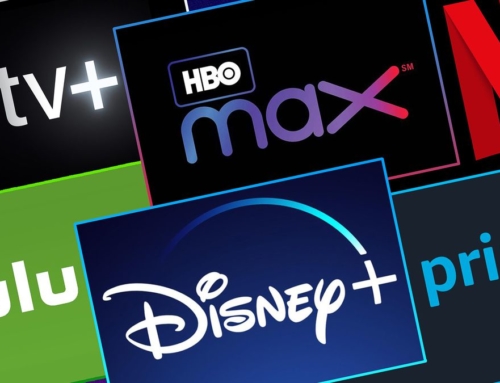The world of online video has grown significantly and quickly in recent years, making it a lucrative yet relentless business. Top creators on YouTube have become self-made millionaires after growing with the video platform and posting, in many cases, day-in-the-life vlog videos. With some creators posting videos every week and pulling in millions of views on each video, their success has eclipsed that of traditional entertainment stars. The payouts are enormous, and with brand deals becoming more common they are only continuing to increase. With the rise of such a profitable business, everyone wants a cut — and with the amount of money generated from top creators, the way in which that money is distributed has become cause for concern. Most recently, a media company that set out to both represent creators and help them achieve greater success folded under the pressure of the fast-moving industry. In doing so, a slew of creators have been left in the dark regarding what their success online might amount to in the real world.
Defy Media was a digital media company based in New York City. The company specialized in producing original online content through its prominent brands such as Smosh and Cleverr. The company also operated a MCN (multi-channel network) that provided studio space and representation to some of YouTube’s most popular stars. In total, the company had 400 employees at its height and produced 75 regularly scheduled shows through its in-house studios across 25 video platforms. The company amassed more than 140 million followers on YouTube and other social media platforms.
On November 5th, the company announced without warning that it would be shuttering operations in both New York and Los Angeles. At the time, the company released a statement blaming “market conditions” for their closure. Their statement reads:
“Regretfully, Defy Media has ceased operations today. We are extremely proud of what we accomplished here at Defy and in particular want to thank all the employees who worked here. We deeply regret the impact that this has had on them today… Unfortunately, market conditions got in the way of us completing our mission.”
The sudden closure left employees of the company and YouTubers represented by the company scrambling. While Defy had secured $70 million in investments just two years ago, it seems the writing was on the wall in regard to the downfall of the company. Defy has faced a series of cutbacks in recent months, having laid off 8% of its workforce while also putting an end to their video licensing and syndication services. In July, the company sold off its Escapist video game series to Enthusiast Gaming and also sold its Screen Junkies brand to Fandom.
Although the company has blamed market conditions for its closure, former employees and YouTube stars say that isn’t the case. Following news of the closure, several prominent YouTubers took to Twitter to address the situation. Claims of misconduct and predatory practices within the company have begun to circulate online from those closest to the situation.
Ryland Adams, a well-known YouTuber and former host for Defy’s entertainment news brand Cleverr, tweeted the following to his 846,000 followers: “I was forced to become a part of Defy Media’s MCN, meaning the YouTube money I work hard for filters through them. After they take a % of MY ads I then get paid MY money. This month I was never paid. A bank took Defy’s money which so happens to be mine that I may never see again.”
He continued: “I never made a ‘Why I Left Cleverr’ video because I was being threatened by Defy’s lawyers on a daily basis. Instead of taking them to court and being stuck in limbo for what could have been years I accepted to join their MCN which is why they were in a position to get a %.”
Adams typically posts one vlog-style video on his YouTube channel each week, with each video averaging 3 million views. It is estimated that a YouTuber can earn up to $5 in ad revenue per 1000 views. Based on this calculation, Adams could be pulling in approximately $4,000 per upload in ad revenue alone, meaning Defy owes him nearly $20,000 for the month of September. It’s unclear how many YouTubers were a part of Defy’s MCN, but Adams is just one of many who have been left in the dark when it comes to the company’s shutdown.
The matter has been further complicated by former employees at the company who say they were given no notice of the impending closure. One employee, Georgina Guinane, has taken the matter as far as a class-action lawsuit on behalf of employees at the company. Guinane has claimed in the lawsuit that Defy did not provide employees with the required 60 days notice of layoff as required by the Worker Adjustment and Retraining Notification Act (WARN Act). Guinane is seeking 60 days worth of wages for herself and other employees who were abruptly laid off.
Following news of this lawsuit, a second claim was filed by Generate Holdings Inc., a talent agency that represents several creators within Defy’s MCN. Their claim alleges, similar to claims made by Adams, that their clients are owed money from AdSense payments that were never paid.
It is speculated that these suits were filed so quickly after the company’s closure under the assumption that the company will soon file for bankruptcy. In doing so, any unsecured debts, including payroll, could be written off by the company, which would make it much more difficult for the plaintiffs in both suits to recoup their lost wages and owed monies than if they had not put the matter before the courts. The suits will make it more difficult now for the company to write off these debts even after filing for bankruptcy.
In total, there is alleged to be $200,000 worth of payments owed to creators. In their lawsuit, Generate Holdings Inc. have alleged that Defy used this money to “artificially inflate their worth in order to obtain emergency funding.” If the courts decide this to be true, Generate Holdings Inc. and their clients could recoup their owed payments due to the fact that (similar to monies related to employee standards violations) “fraudulent actions cannot be discharged in bankruptcy.”
Given the number of creators who worked with Defy and the number of complaints that have since generated as a result of the company’s closure, YouTube has stepped in to ease part of the burden that has been placed on these creators. YouTube has started the process of releasing creators from Defy’s network. In doing so, any revenue that they generate from future video posts will no longer be required to pass through Defy first. YouTube has also reportedly started enrolling many of Defy’s MCN members in their own YouTube Partner Program to streamline the process for future payments. The video platform will also pay creators the AdSense revenue they are currently owed for the month of October. Those payments are set to be distributed in early December.
For now, it’s unclear how things will turn out for the owners of Defy Media. With multiple lawsuits pending and a suspected bankruptcy looming, it looks like this could be the end of the road for what was once an extremely powerful tech company operating in a fickle subsection of the entertainment industry. Unfortunately, that’s just how things seem to operate when working within the unregulated boundaries of the internet. One creator, Hank Green, put it best when he said, “the more I learn about the business of early online video, how things actually went down, the more I see that the ‘wild west’ wasn’t about how free we were to create, it was about how free assholes were to suck value out of innovative young creators.”
The creators who have been caught up in the demise of Defy will hopefully be escaping this matter relatively unscathed, with YouTube picking up the slack in regard to the money owed to creators and the regulation of their payments going forward. One thing is for sure: the online video business is booming, with millions of dollars being brought in annually. Given that this is such a new business model, it is grossly unregulated, which often leaves creators to fend for themselves, making them susceptible to potentially predatory business practices — as was seemingly the case with the clients who worked with Defy. It’s hard to say who the burden falls on when it comes to ensuring greater protections for creators, but it is safe to say that everyone involved, especially the giant video platforms such as YouTube, could be doing more to ensure that these types of scenarios don’t occur again in the future.











Leave A Comment
You must be logged in to post a comment.